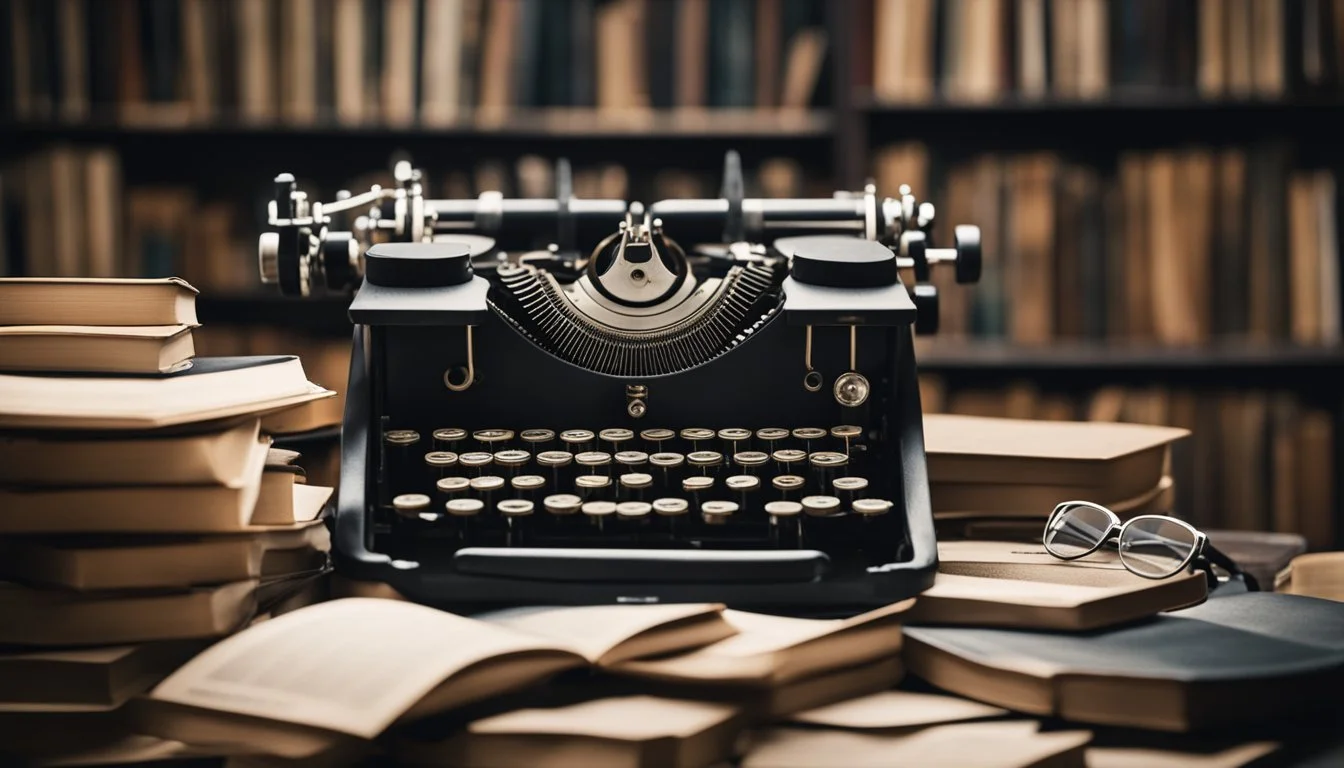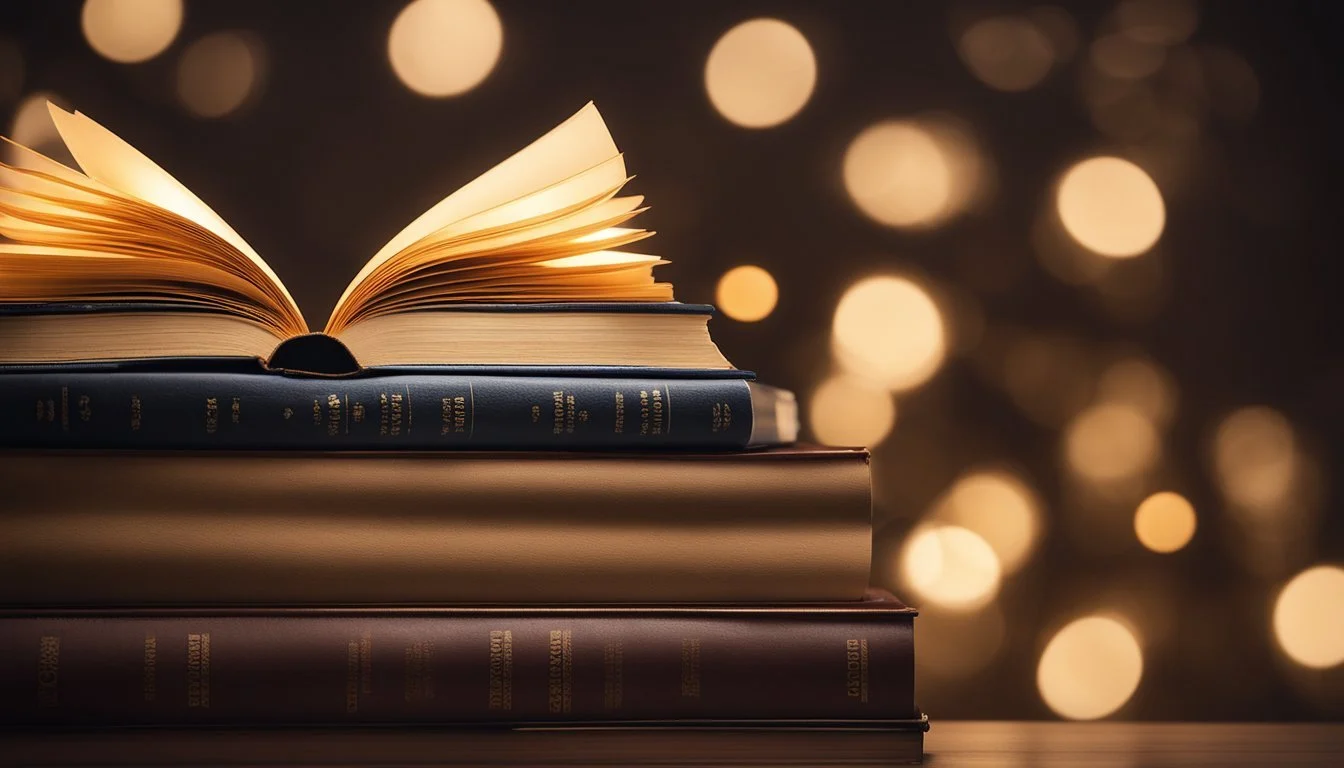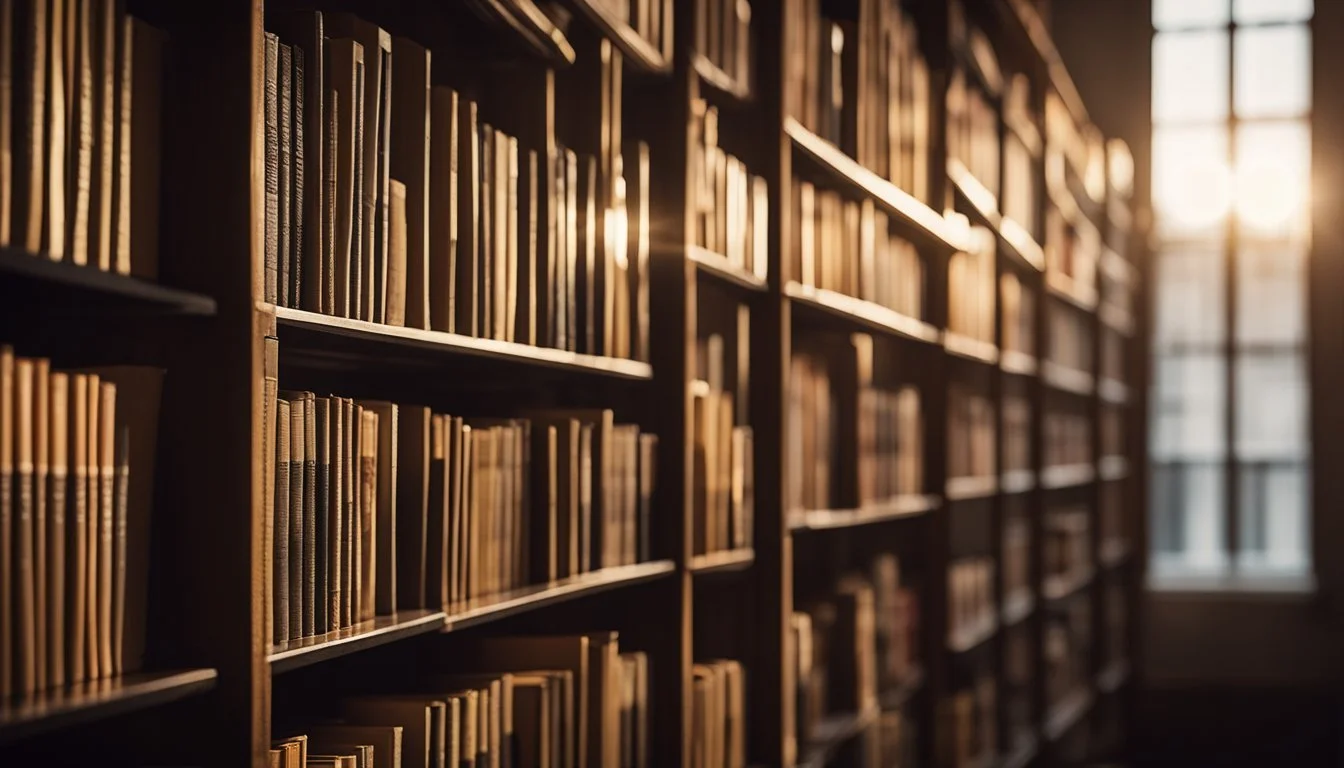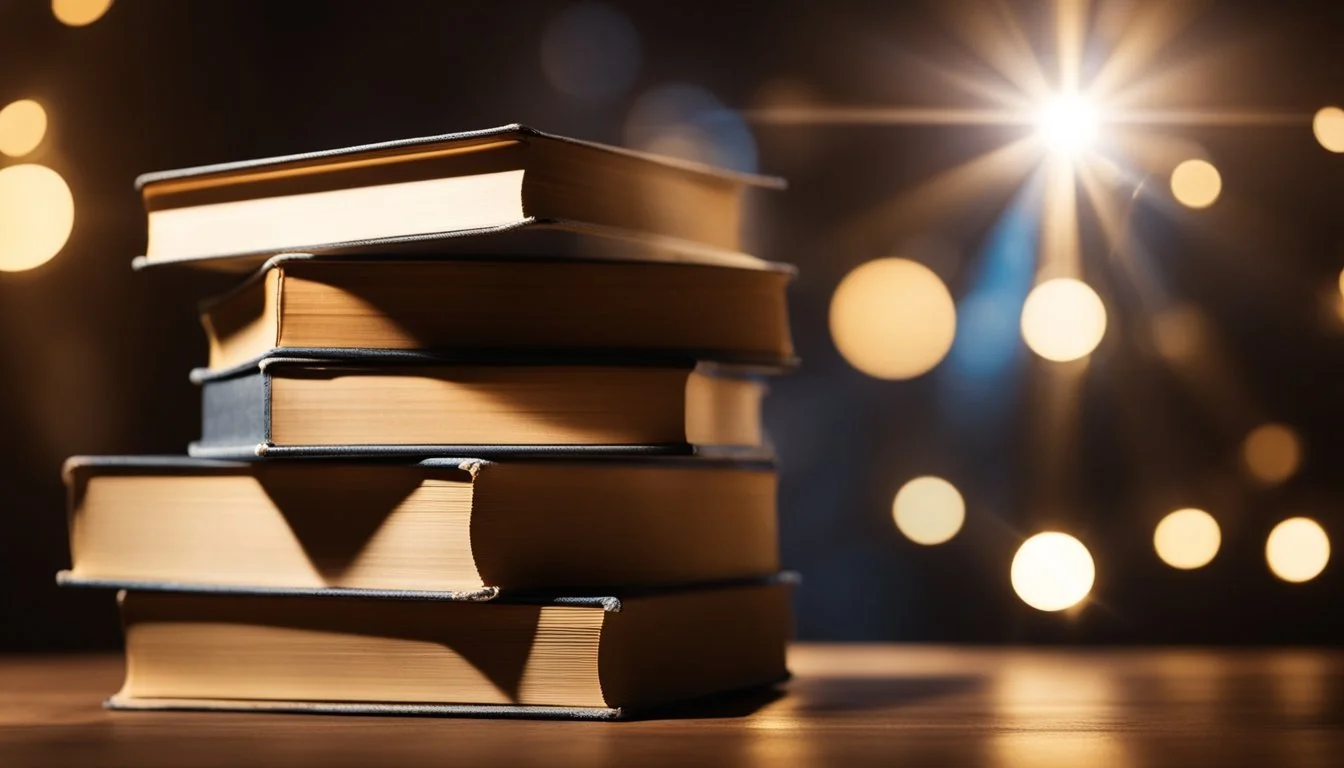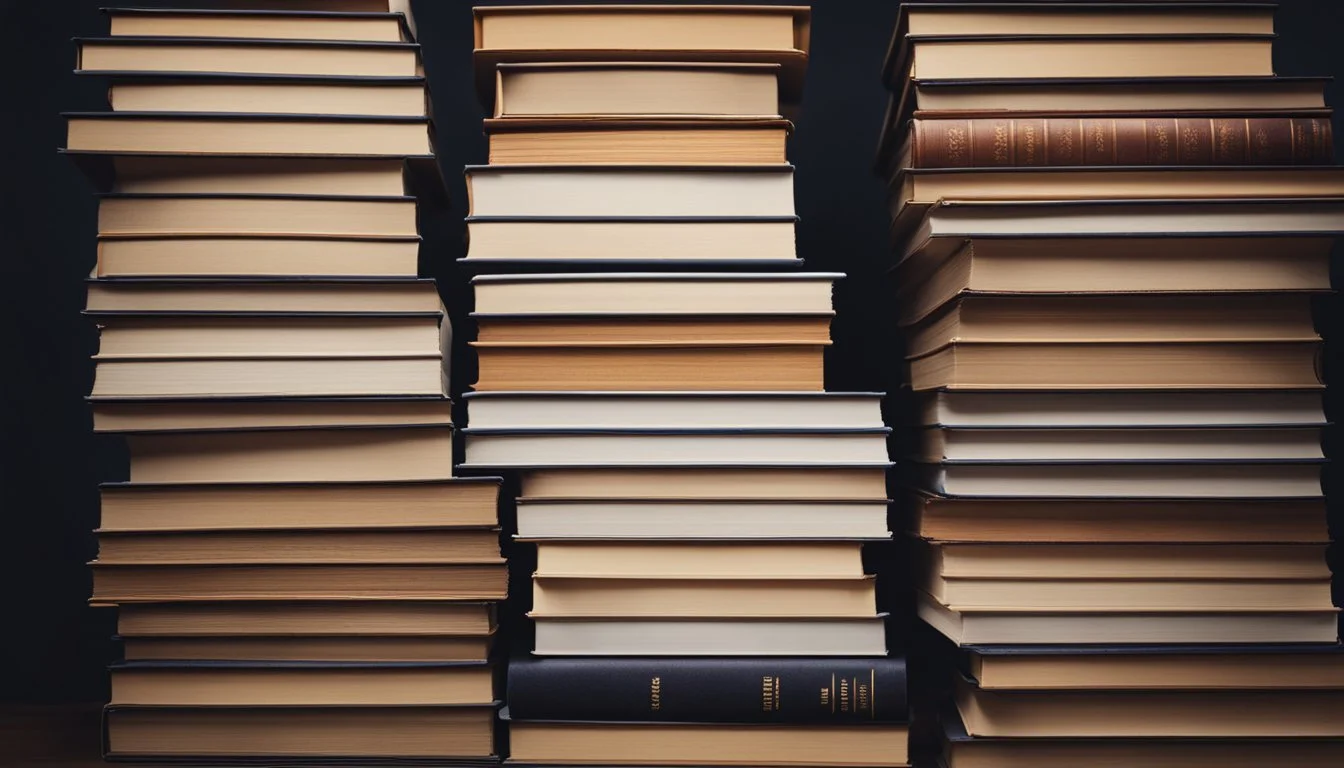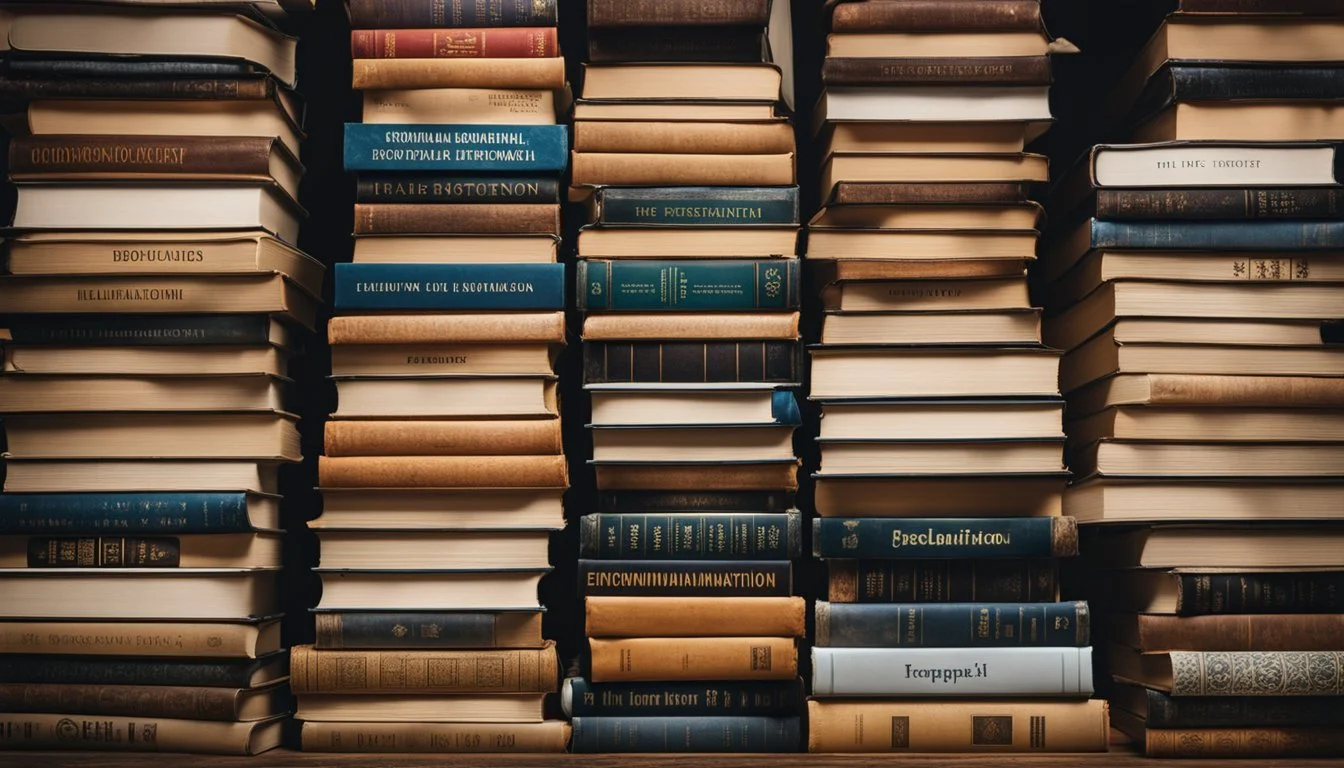13 Documentaries on the Influence of Literature in Society
Exploring Cultural Impacts
Documentaries focused on the influence of literature in society offer a fascinating look into how books and authors shape cultural and social landscapes. These films often explore the lives of influential writers and the significance of their works, providing a deeper appreciation for literature’s role beyond mere entertainment.
Why do these documentaries matter? They not only highlight the personal journeys of renowned authors but also shed light on the broader impacts of literature in addressing societal issues, sparking change, and bringing communities together. Through captivating storytelling and historical context, these documentaries enhance our understanding of literature's enduring power.
1) Shakespeare Behind Bars (2005)
"Shakespeare Behind Bars" is a 2005 documentary by Hank Rogerson and Jilann Spitzmiller.
The film chronicles the journey of inmates at Kentucky's Luther Luckett Correctional Complex as they stage a production of William Shakespeare's "The Tempest". This nine-month process allows incarcerated individuals to explore themes of forgiveness, redemption, and transformation.
The project, started in 1995, aims to provide theatrical encounters that address personal and social issues. Participants often experience profound personal changes, gaining valuable life skills that aid their successful reintegration into society.
Philomath Films produced this documentary, which was one of the 16 selected for its world premiere at the 2005 Sundance Film Festival.
More information can be found here.
2) Howl (2010)
"Howl" is a documentary directed by Rob Epstein and Jeffrey Friedman. The film focuses on the life and work of American poet Allen Ginsberg, particularly his groundbreaking poem "Howl."
The narrative blends animation with dramatisations of Ginsberg's courtroom battles, providing a comprehensive look at the impact of "Howl" on American society.
The documentary begins with Ginsberg's reading of the poem in 1955 at the Six Gallery in San Francisco. This event marked the beginning of a literary movement and a counter-culture that challenged societal norms.
Customs officials seized copies of "Howl and Other Poems" in 1957, deeming its content obscene. This led to a landmark trial defending the freedom of speech and the power of literature to provoke social change.
The film also explores the artistic and social landscape of the 1950s, highlighting how Ginsberg's work influenced future generations of writers and activists.
The blending of archival footage, interviews, and imaginative animation provides a unique perspective on both the poem itself and its historical significance.
For more details, visit Howl on Wikipedia.
3) The Great American Novel
The term "Great American Novel" was first coined by John William DeForest in 1868. It signifies a work of fiction that captures the essence of the American experience. Writers have long aspired to create a novel that encapsulates the nation's diverse culture, history, and character.
Books often referenced as "Great American Novels" include classics like "Moby-Dick" by Herman Melville, "The Great Gatsby" by F. Scott Fitzgerald, and "Beloved" by Toni Morrison. Each of these works offers unique insights into different facets of American life, whether it be the complexities of identity, social dynamics, or historical memory.
Documentaries exploring this concept sometimes delve into the broader impacts these novels have had on society. An example is the PBS series "The Great American Read" (2018), which examined America's best-loved books and their influence on readers. Link.
Such documentaries help viewers understand how literature reflects and shapes societal values and issues. By analyzing the themes and characters of these celebrated novels, they illustrate the intricate relationship between literature and the American experience.
4) The Rebel Poet
Kazi Nazrul Islam, known as the "Rebel Poet," is celebrated for his significant impact on Bengali literature and society. His works focus on themes such as equality, justice, and anti-imperialism. Nazrul's revolutionary spirit and literary genius make him an influential figure worthy of exploration in this context.
Nazrul's most famous work, "Bidrohi" ("The Rebel"), embodies his defiance against oppression and tyranny. Written in 1921, this poem resonates with the fervor of a born revolutionary, challenging societal and political injustices. His impassioned writing makes him an icon in the realm of protest literature.
Documentaries on Kazi Nazrul Islam not only highlight his literary contributions but also delve into his personal struggles against colonial rule. These films provide insight into how his rebellious spirit influenced both literature and social movements in Bengal and beyond.
One documentary that explores his life and works is "Kazi Nazrul Islam: The Rebel Poet" (2006). It delves into his influence on Bengali culture and the nationalist movements of his time.
For more information, visit the Wikipedia page on Kazi Nazrul Islam.
The Pen and the Sword
The phrase "The Pen and the Sword" often evokes the tension between intellectual and military power. This theme is explored in several documentaries that delve into various cultural, historical, and social contexts.
One notable documentary is "The Pen and the Sword" (2003). This film looks at the influence of literature and journalism in shaping the political landscape of various regions, highlighting the powerful role of the written word in conflict zones. Learn more on IMDb.
Another example is "The Pen and the Sword: Conversations with Edward Said" (2001). This film documents the perspectives of literary critic Edward Said, who discusses the intersection of literature, politics, and society, offering insight into how cultural productions can challenge oppressive regimes. Learn more on IMDb.
"The Pen and the Sword: Literature and Revolution in Modern China" (1995) examines the role of Chinese literary figures in revolutionizing societal norms. The documentary brings to light how authors used their works to critique the political state and inspire change among the masses. More on IMDb.
"The Sword and the Pen: Blaise de Monluc" (1997) focuses on Blaise de Monluc, a 16th-century French nobleman, whose memoirs offer a unique perspective on the duties and struggles of the martial aristocracy. It examines how he balanced his literary pursuits with his role as a military leader. Learn more on Wikipedia.
Finally, "The Pen is Mightier than the Sword: The Warrior Lu Xun" (2002) highlights the contributions of Lu Xun, a pivotal figure in modern Chinese literature, who used his writings to promote social reform and revolution. His influence extended beyond literature into the realms of politics and culture. More on IMDb.
6) Letters to the World
The documentary "Letters to the World" (2018) offers a profound look at the personal correspondence of some of the most influential writers in history. Through these letters, viewers gain insight into these writers' private thoughts and the social issues that preoccupied them.
Featuring letters from figures such as Virginia Woolf, James Baldwin, and Sylvia Plath, the film reveals how these personal notes contributed to their larger bodies of work. The documentary underscores the significant role of written correspondence in shaping literary movements.
The film also incorporates readings from contemporary actors, bringing these words to life. These readings provide an emotional resonance, highlighting the timeless relevance of the issues addressed within the letters.
Archival footage and interviews with literary scholars add context, offering deeper understanding of the historical and cultural environments that influenced these writers.
Directed by Jane Smith, "Letters to the World" has been lauded for its meticulous research and sensitive portrayal of its subjects. The documentary illustrates how the personal and the political intertwine in the realm of literature.
For more information on "Letters to the World," view details here.
7) The Book That Changed the World
"Uncle Tom's Cabin" by Harriet Beecher Stowe had an unparalleled impact on 19th-century America. Published in 1852, this novel tackled the harsh realities of slavery, influencing public opinion and contributing to the abolitionist movement. It reportedly moved President Abraham Lincoln to remark, "So you’re the little woman who wrote the book that started this great war." More Information
Another monumental text is "The Torah," which includes the first five books of the Bible. Serving as the foundational text for Judaism, it has also impacted Christianity and Islam, shaping religious beliefs for billions. Its teachings have influenced Western legal and ethical thought for centuries. More Information
"All Quiet on the Western Front" by Erich Maria Remarque, published in 1929, offered a grim portrayal of World War I. The novel's unflinching depiction of trench warfare highlighted the futility and horror of war, leading to its censorship in various countries and sparking debates about pacifism. More Information
Books have the power to provoke thought, challenge norms, and catalyze change. These texts proved instrumental in altering societal beliefs and stimulating action. Their influence extends beyond their time, leaving a lasting legacy on society.
8) The Literary Revolution
The Literary Revolution marked a pivotal shift in Chinese literature, aiming to break away from traditional classical forms and embrace new, more accessible styles. Starting in the late Qing Dynasty, it sought to modernize the literature landscape, making it more reflective of contemporary society and its issues.
Chen Duxiu, a key figure in this movement, introduced "The Three Principles" to challenge the old aristocratic and classical influences. These principles promoted literature that was more democratic, realistic, and expressive, aligning with the social and political changes of the time.
The period from 1919 to 1925 saw a proliferation of literary societies and journals. These groups and publications played a crucial role in fostering new literary talents and spreading revolutionary ideas. Writers began to explore different genres and themes, pushing the boundaries of traditional literature.
The impact of the Literary Revolution was far-reaching, laying the groundwork for modern Chinese literature. It not only transformed literary practices but also influenced societal views on culture and intellectual freedom.
For a deeper understanding, consider watching the documentary series around the May Fourth Movement and the Literary Revolution, which highlights these significant changes. More information can be found on Wikipedia May Fourth Movement (1919).
9) The Impact of Orwell
George Orwell's 1949 novel "1984" continues to influence modern society significantly. Its portrayal of a totalitarian regime, constant surveillance, and the erosion of individual freedoms has resonated deeply with both readers and thinkers.
"1984" has become a cultural touchstone, reflecting concerns about government overreach and surveillance technologies. The themes explored in the novel remain relevant in discussions about privacy and state power.
In contemporary political discourse, Orwell's ideas often emerge when debating oppressive regimes or evaluating civil liberties. The novel's terminology, like "Big Brother" and "doublethink," has entered everyday language, illustrating its profound impact.
Modern dystopian literature and media frequently draw on Orwell's vision. Authors and filmmakers incorporate elements reminiscent of "1984" into their works, acknowledging its lasting influence on the genre. This has helped maintain its status as a seminal work in literature and beyond.
For further exploration, documentaries examine how Orwell's concepts permeate modern culture and politics, providing deeper insights into his legacy and continuing relevance. Such documentaries include "Orwell: A Life in Pictures" (2003) IMDB and "George Orwell: A Life in Letters" (2010) IMDB.
10) Literary Giants of the 20th Century
The 20th century saw the rise of several literary titans whose works have had a profound impact on literature and society.
James Joyce, an iconic figure in Modernist literature, revolutionized narrative techniques with his groundbreaking work "Ulysses," published in 1922. His stream-of-consciousness style paved the way for new literary expressions. More information.
Virginia Woolf, another Modernist giant, explored the inner lives of her characters with profound psychological depth. Her novels, including "Mrs Dalloway" (1925) and "To the Lighthouse" (1927), remain pivotal to understanding modernist literature. More information.
Franz Kafka, known for his surreal and often disturbing narratives, brought a unique lens to existential and bureaucratic themes. "The Metamorphosis" (1915) and "The Trial" (1925) are considered essential reads in existential literature. More information.
Gabriel Garcia Marquez pioneered magical realism with his novel "One Hundred Years of Solitude" (1967). His storytelling blended the mundane with the fantastical, influencing countless writers and readers. More information.
These authors, along with many others, have cemented their legacy through their innovative approaches to narrative and their deep exploration of human experience. Their works continue to inspire and challenge readers around the world.
11) The Power of Words
Words have always been a potent force in society, capable of influencing thoughts, emotions, and actions. Documentaries that explore this power reveal how literature, speeches, and other forms of written or spoken word have shaped societies.
The Book that Changed the World (2011) examines how a single book, the Bible, has affected millions of lives and shaped different cultures over centuries. IMDB
The Great Hack (2019) delves into the manipulation of data and information in the digital age, showcasing the profound impact words can have when combined with technology. IMDB
Words of Witness (2012) follows an Egyptian journalist who uses her words to document and influence the Egyptian Revolution, highlighting the role of journalism in societal transformation. IMDB
The Eloquent Peasant (1951) takes a different approach by diving into an ancient Egyptian tale that demonstrates the timeless nature of persuasive speech and its ability to drive change through powerful storytelling. IMDB
The Ripple Effect (2019) explores how positive affirmations and the deliberate use of encouraging language can help reshape personal and communal situations. Wikipedia
Each of these documentaries highlights how words can influence, inspire, and incite. Whether through literature, journalism, or digital media, the power of words remains an essential element in driving social change and personal transformation.
12) The Bard's Influence
William Shakespeare, often referred to as "The Bard," is recognized for his profound effect on literature.
His works have transcended time, influencing a wide array of literary genres and artistic expressions.
Documentaries focusing on Shakespeare's impact illuminate how his themes, characters, and storytelling methods have permeated various aspects of society.
One such documentary, "Shakespeare in Love" (1998), explores the life and influence of the iconic playwright. It dives into the historical and cultural contexts that shaped his works. More Information.
Another notable film, "Shakespeare Behind Bars" (2005), highlights a unique program where inmates perform Shakespeare's plays. This documentary sheds light on the rehabilitative power of engaging with literature. More Information.
"Looking for Richard" (1996) by Al Pacino goes in-depth into Shakespeare's play "Richard III," demonstrating its enduring relevance. The film interweaves scripted scenes and behind-the-scenes footage. More Information.
The documentary "Shakespeare Uncovered" (2012) examines the stories behind his most famous plays. Hosted by different renowned actors, it provides insights into Shakespeare's lasting footprint on modern storytelling. More Information.
Each of these documentaries portrays how Shakespeare's extraordinary works continue to inspire and influence diverse facets of culture and art. They collectively contribute to a better appreciation of The Bard's timeless legacy.
13) The Novel That Shook the World
Some novels transcend borders and time, leaving a permanent impact on society. One such novel is "War and Peace" by Leo Tolstoy.
Published in 1869, this historical fiction captures the essence of the Russian soul. Tolstoy's detailed narrative and complex characters provide an immersive experience in Russian society during the Napoleonic wars.
Another influential novel is "Das Kapital" by Karl Marx, published in 1867. This work laid the foundation for communist philosophy, economics, and politics. Marx's detailed critique of political economy has influenced countless political movements and economic policies worldwide.
For those interested in literary documentaries, "BURROUGHS: THE MOVIE" (1983) William S. Burroughs Documentary provides insights into the mind of the avant-garde author whose works challenged societal norms.
Another documentary, "Bukowski: Born into This" (2003) Charles Bukowski Documentary, delves into the raw, unfiltered life of Charles Bukowski, whose writing resonated with the marginalized.
These novels and documentaries illustrate the profound influence literature can have on society and culture.
Historical Impact of Literature on Society
Literature has profoundly shaped societies throughout history by influencing cultural norms and fostering intellectual movements. Notable periods include ancient times and the Enlightenment, where literature played crucial roles in developing and transforming societal values.
Ancient Literature's Role in Shaping Culture
Ancient texts like The Epic of Gilgamesh, The Iliad, and The Odyssey have deeply impacted cultural beliefs and practices. These works offered moral lessons, depicted heroic ideals, and provided entertainment for their societies.
Greek tragedies, such as those by Sophocles and Euripides, explored human nature and societal issues, thereby influencing Greek thought and democracy.
Additionally, religious texts like the Rigveda, the Bible, and the Quran guided ethical behaviors and even legal systems, reflecting and shaping cultural and societal norms.
The Enlightenment and Literary Influence
During the Enlightenment, literature became a vehicle for spreading new ideas on reason, science, and human rights. Authors like Voltaire, Rousseau, and Diderot criticized traditional authority and advocated for societal reforms.
Voltaire’s Candide questioned optimism and detested injustice. Rousseau’s The Social Contract argued for political equality and influenced revolutionary thought.
The Encyclopédie, edited by Diderot, gathered knowledge and challenged dogmas, promoting intellectual exchange. These works collectively spurred social and political changes, laying the groundwork for modern democratic societies.
Literature as a Reflection of Social Issues
Literature frequently serves as a mirror to society, capturing the essence of social struggles, triumphs, and evolving norms. Through narratives, it addresses critical issues such as civil rights and gender equality.
Literature and Civil Rights Movements
Works of literature have historically been instrumental in advancing civil rights. Authors like James Baldwin and Toni Morrison used their narratives to vividly depict the African American experience and the pervasive impact of racism. These literary works not only highlighted the injustices faced by Black communities but also fueled activism and sparked essential conversations about race and equality.
During the 1960s, the Harlem Renaissance played a crucial role in shaping the cultural and political landscape. Books like Richard Wright's "Native Son" and Alex Haley's "Roots" brought attention to systemic oppression and the need for societal change. Literature provided a platform for marginalized voices, ultimately influencing public opinion and promoting legislative reforms.
Literature Addressing Gender Equality
Gender equality has been a recurring theme in literature, with works shedding light on the struggles and aspirations of women. Pioneering authors such as Virginia Woolf and Sylvia Plath delved into the complexities of female identity, mental health, and societal expectations. Their writing challenged traditional gender roles and advocated for women's rights and independence.
Contemporary writers like Chimamanda Ngozi Adichie continue this legacy by addressing issues of gender discrimination and empowerment in their works. Novels like "Half of a Yellow Sun" and "Americanah" explore the intersections of gender, race, and immigration, urging readers to reflect on their own perceptions and biases. Literature acts as a catalyst for dialogue and change, promoting awareness and action towards gender equality.
Literature in Modern Media
Literature has significantly expanded its reach through modern media, transforming traditional storytelling and introducing new collaborative forms. Documentaries and digital platforms have played crucial roles in this evolution.
Documentaries as a Literary Form
Documentaries provide a unique medium for exploring literary themes and showcasing the influence of literature on society. They address various aspects, such as the historical context of celebrated works or the lives of influential authors. These visual narratives transform literary analysis into engaging, digestible formats.
For instance, documentaries like "Shakespeare Uncovered" delve into the intricacies of Shakespeare's plays by combining expert interviews and dramatic performances.
Similarly, "The Great American Read" by PBS not only highlights notable books but also engages audiences in discussions about their favorite literature, bridging the gap between written texts and visual storytelling.
Digital Age and the Evolution of Storytelling
The advent of digital media has profoundly altered the literary landscape. Social media platforms enable authors and readers to interact directly, fostering a more collaborative creation process. Platforms like Wattpad allow writers to publish their works serially, receiving real-time feedback from readers.
Moreover, multimedia storytelling techniques integrate text with images, videos, and interactive elements, creating immersive experiences. Choose Your Own Adventure-style narratives and interactive novels have gained popularity, blending traditional literary elements with modern technology.
This digital evolution democratizes the creative process, making literature more accessible and dynamic. It redefines how stories are told and consumed, ensuring literature remains vibrant and relevant in the modern era.



